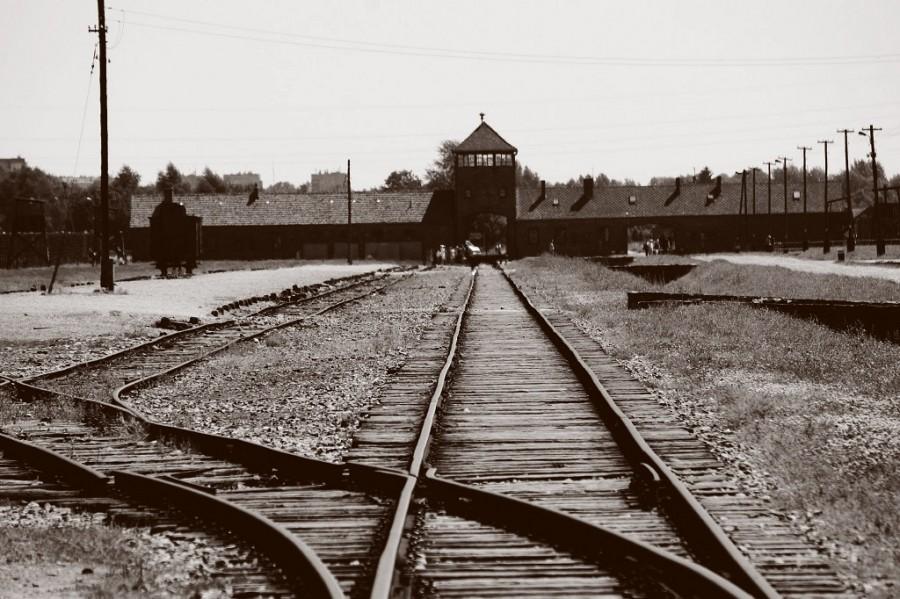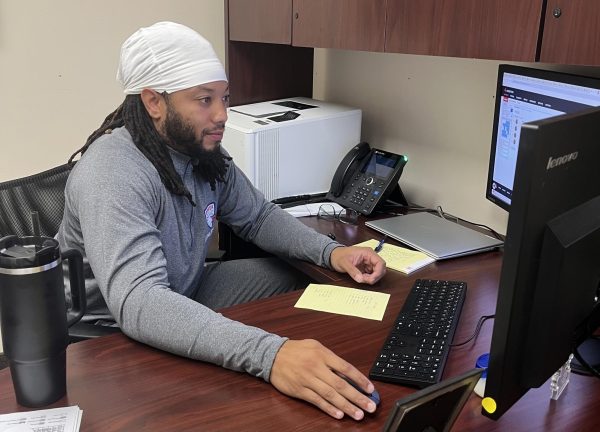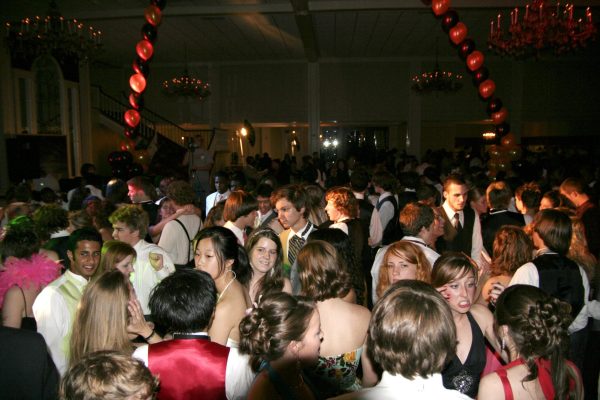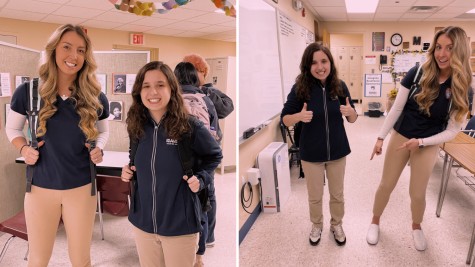A personal journey through the Holocaust
The train tracks leading to the entrance of the infamous Auschwitz concentration camp.
“Speechless is the best way to put it,” AMSA English teacher Adrienne Masiello said when asked to describe the response that 10th grade students had to a presentation given on May 14 by junior Rafi Cohen about the Holocaust and his family’s journey through World War II.
“Everybody conveys the story of the Holocaust differently—some with just facts and others have the ability to move you,” sophomore Victoria Fater said. “And Rafi, he moved me.”
It’s not often that 150 or so students are all quiet and paying attention at the same time, but Rafi managed to mesmerize every one of them. Using his voice as his most powerful and prominent tool, Rafi shared his family’s story, keeping the projector screen mostly black throughout the presentation and only showing troubling images and videos at the end.
Rafi wanted to give students a chance to connect with one family’s Holocaust story. He hoped that the students would be invested in just that—the story—and not the visuals. He took something that seems enormous and unexplainable and made it personal, relatable, and moving.
Rafi described the clickity-clack of Nazi soldiers’ boots on the pavement outside his family’s home, the screaming officer’s commands, the smell of burning flesh in the concentration camps, and the wailing of children as they were separated from their mothers.
“Everybody was silent as they made their way back to class,” sophomore Nick Sousa said. “It was shocking.”
Rafi explained that when he first came up with the idea of telling his family’s story through the Holocaust he knew his goal wasn’t simply to give a presentation.
“I actually hate the word itself,” Rafi said with a laugh.
He felt it was his job to educate people about the Holocaust.
“The Holocaust seems to be slipping into the fog of history and we are losing our connection to it,” Rafi said.
He used his voice, an audio clip of the song “Eli, Eli” by Hannah Szenes, and a flag he brought on his trips to Israel and Poland to connect his fellow students with a terrifying time in history.
The song, originally a poem by Ms. Szenes and later set to music by David Zahavi, is a simple prayer to God, stressing the eternal hope for certain things like “the sand and the sea” and “the prayer of man” to never end.
For Rafi, it is the perfect accent to the message: Teaching the Holocaust can never end because if that fog of history begins to obscure the facts and the horror, then the risk is that it can be repeated.
Ms. Masiello first heard about Rafi’s presentation through his Nazi Germany class, taught by Katherine Jankun, and Ms. Masiello later approached Rafi in the hope that he would share his story with the entire sophomore class as they prepared to read Elie Wiesel’s Night, a haunting account of the Holocaust.
Rafi’s presentation illustrates that what happened in the 1940s still has an impact today. Anybody who teaches people about the Holocaust has one goal in mind: keep the story alive.
History has a habit of repeating itself, but through education the hope is that this phenomenon can be avoided.
Ms. Masiello discussed this idea with her students in class and, after Rafi finished his presentation, she said one of the best moments was seeing her students thanking him.
“They showed respect for someone who walks the halls with them,” Ms. Masiello said. “I think the fact that it was [presented by] a peer made it very real.”
As she looked at her students, captivated and curious, Ms. Masiello felt hopeful for the future. They were invested in what they were learning, and for a teacher, that is all one can ever hope for.
She also understood the important message that, as a teacher, “you’re not always the best person to deliver a message,” she said.
Rafi explained that while he has always had a passion for his family’s history and Jewish heritage, it was last summer, when he went on a trip to Israel and Poland, that he really started addressing the issues he was seeing.
“The rising anti-Semitism since the Gaza War is a new reality which I’ve had to adjust to,” Rafi wrote in a journal entry.
Rafi’s ultimate goal is to do something much greater than tell a story about his family. He hopes to open people’s eyes to the rise in anti-Semitism and ignorance in today’s world. His purpose is not to scare people—rather, it is to answer the question, Could the Holocaust happen again?
“The answer lies in the question,” Rafi said. “It has happened again and it is happening again, yet we stand idly by. There have been genocides in Cambodia and Rwanda and in countless other places in the world. The fact that we can know about it and still do nothing is frightening.”
For Rafi, doing nothing is not an option.
“I won’t stand idly by while hate and injustice grows,” he said.
Correction: Rafi’s comments about Gaza and anti-Semitism were written in a journal, not a questionnaire.
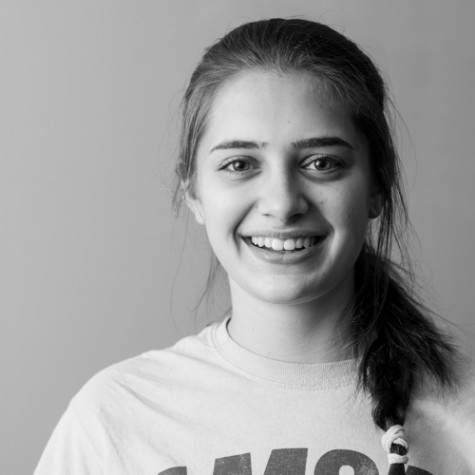
If you asked Rebecca’s friends how they would describe her, they would probably say compassionate. She cares a lot about her friends, and always tries...

